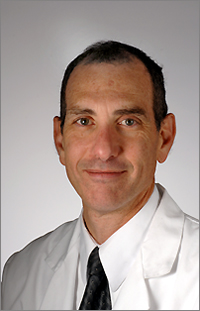Our Science – Maldarelli Website
Frank Maldarelli, M.D., Ph.D.
 |
|
|||||||||||||||||||||
Biography
Dr. Frank Maldarelli received his Ph.D. from the City University of New York and his M.D. from Mount Sinai School of Medicine. After completing his residency in internal medicine at The Columbia-Presbyterian Hospital, New York, he joined the Laboratory of Molecular Microbiology at the National Institute of Allergy and Infectious Diseases (NIAID) as a Medical Staff Fellow. Dr. Maldarelli joined the National Cancer Institute (NCI) in 1998 as Head of the In Vivo Biology Group in the HIV Drug Resistance Program (DRP). Representing the clinical research arm of the DRP, he has established extensive collaborations between the DRP in Frederick and both the NCI HIV and AIDS Malignancy Branch and the NIAID AIDS clinical research program in Bethesda. Dr. Maldarelli is an Attending Physician in the NIAID/CCMD HIV service, and is currently a faculty member of the International Society of Infectious Diseases HIV Training Program, NIH Infectious Disease Consult Service, and Center for Bio-Medical Communications Infectious Disease Board Review Course, and a lecturer in the Washington D.C. community outreach PACT Program.
Research
Clinical Studies on HIV Resistance
The In Vivo Biology Group develops and implements clinical protocols to elucidate mechanisms underlying the emergence of resistance in vivo, the dynamics of infection under treatment, and the role of resistance mutations in the efficacy and failure of subsequent treatments.
In the first of four projects conducted by the In Vivo Biology Group, our goal is to determine the dynamics of viral replication in HIV-infected patients on suppressive antiretroviral therapy. These studies are being extended in clinical trials performed at NIH and elsewhere to determine the levels of viremia when treatment regimens are either simplified or intensified. We are also exploring new strategies to decrease reservoirs of HIV-1 in infected individuals.
In a second research project, we are investigating the genetic structure of HIV populations in infected individuals. We are using the single-genome sequencing technology developed by the Virology Core to analyze and understand the accumulation of genetic variation in the gag/pol and env genes of HIV-1 in a number of different patient groups, including chronically infected patients, both naive and on therapy, as well as in primary and early HIV-1 infection. The goal of this study is to understand the nature of the forces (mutation, selection, drift, recombination) that mold the genetic diversity of virus populations before and after antiretroviral therapy is introduced.
The third project is focused on the dynamics of the appearance and disappearance of drug resistance mutations in HIV-infected individuals. In several collaborative studies, we are assessing the role of low-frequency mutations on subsequent treatment failure and analyzing the appearance and disappearance of NNRTI resistance mutations in women exposed to single-dose nevirapine to prevent mother-to-infant transmission.
The goal of the fourth project is to improve our understanding of HIV-1 drug resistance in vivo. In a clinical protocol of patients with drug-resistant HIV-1, we are investigating the effects of short-duration, single-drug discontinuations. Using standard viral RNA level determinations and single-genome sequencing, we are investigating the contribution of individual antiretrovirals to partial suppression of virus, and identifying mutations associated with resistance to that drug. We are currently investigating the role of new RT connection domain mutations identified by Dr. Vinay Pathak of the HIV Drug Resistance Program.
This page was last updated on 8/11/2008.

